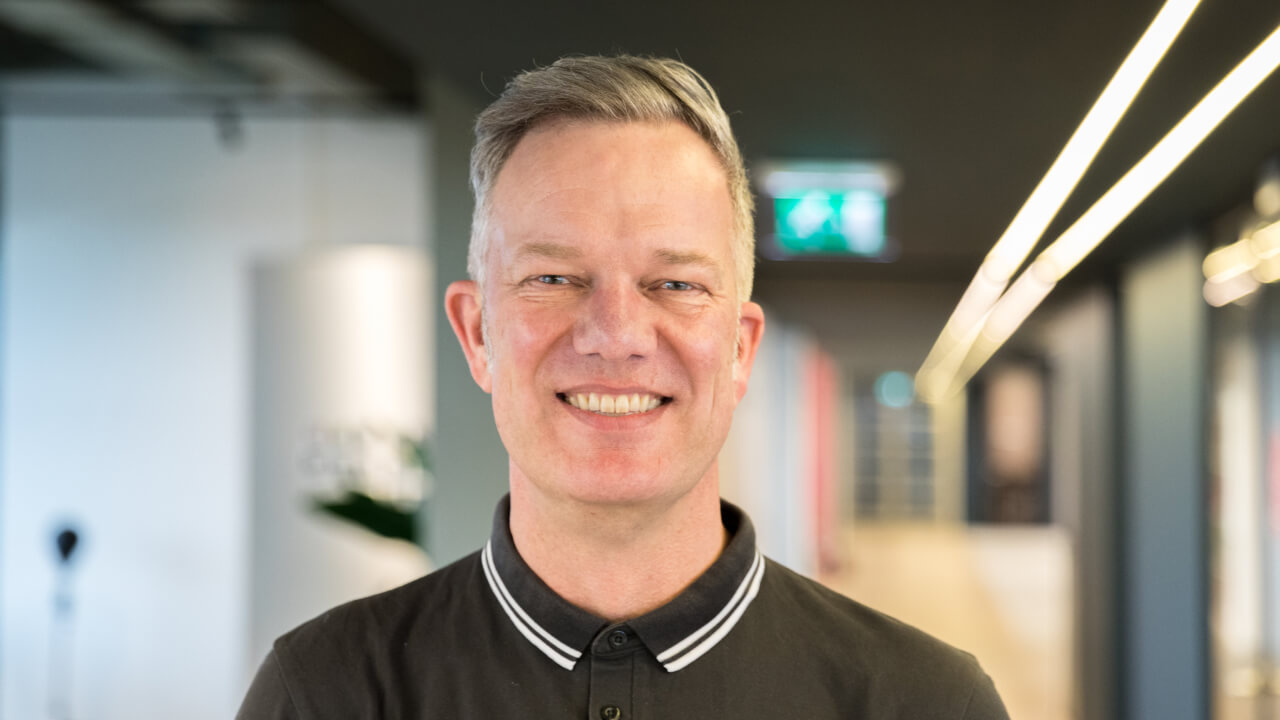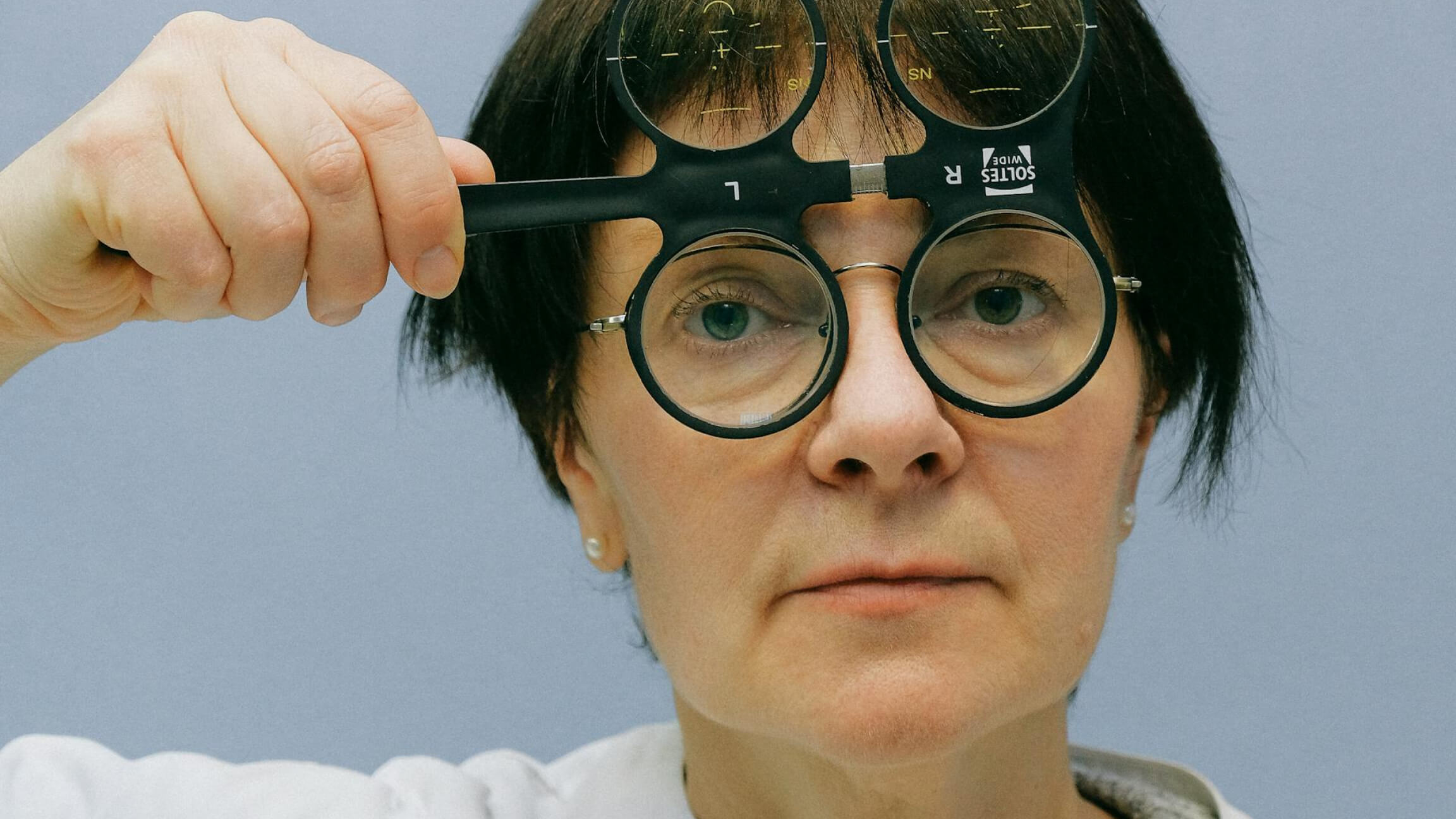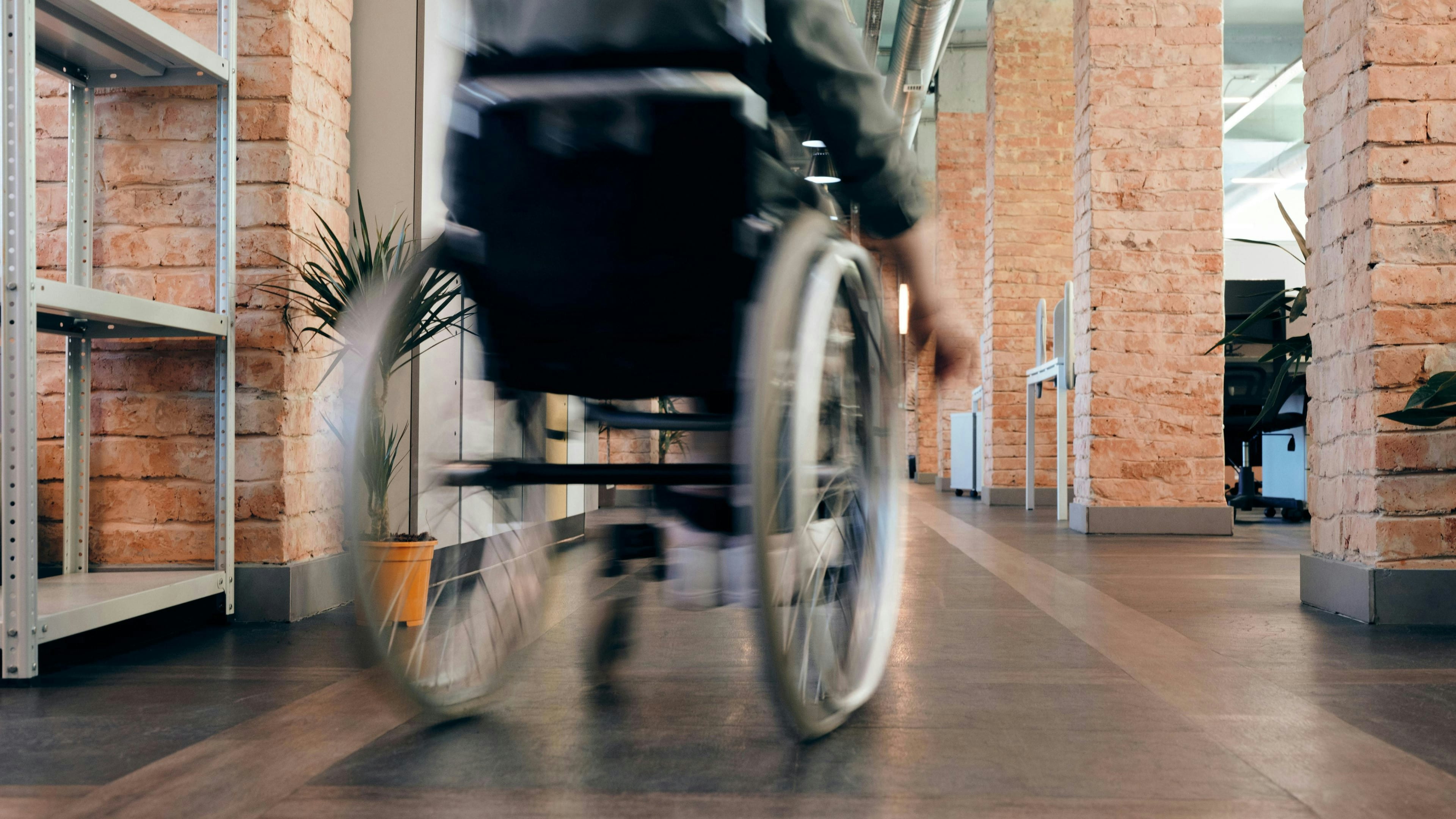
A smart parking app for people with disabilities
Parking with a disabled parking permit (GPK) should be easier, right? We approached the problem from the user's perspective and designed a smart parking app that solves the biggest pain points. The solution embraces values dear to municipalities and GPK holders alike: ease, freedom, inclusivity, privacy, and justice.
Hassle-free on the go
We were tasked by the NL DIGIbeter innovation fund to develop a digitally scannable parking solution that respects the privacy of people with disabilities. This initiative, in collaboration with the municipalities of Amsterdam, Haarlem, and Leiden, was partly prompted by the fact that the paper-based disabled parking permit (GPK) hinders the digitalization of the parking chain. The GPK does not include a license plate number, causing dropouts with scan cars. Additionally, the card is highly susceptible to fraud—a problem for municipalities and for people reliant on the parking facility. By adopting the users' perspective, we were able to tackle another major frustration: the maze of parking regulations. The result? The design of a smart parking app that enables people with physical disabilities to travel without hassle in the Netherlands.
With and for users
In the innovation team, we followed an approach that put the user at the center, from start to finish. Qualitative research greatly aided our understanding of people with disabilities and officials, their context, and experiences. We learned that GPK holders often have to figure out various details before setting out, based on not always up-to-date information. The biggest obstacles include: differing policies between municipalities, difficulty in finding (free) disabled parking spots, and accessibility concerns. For a wheelchair bus, many places are not spacious enough; for individuals transitioning from a car to a wheelchair, a parallel, high curb can be challenging. And a lamppost or parking sign at the rear or side can hinder exiting.
From research to prototype
We developed four personas, addressed the most important values, and tested the viability of two different value propositions. The solutions were repeatedly tested with users and refined in several iterations. In 8 sprints of three weeks, we conducted about 50 in-depth interviews with drivers, passengers, and caregivers, and held more than 15 discussions with experts in the parking domain, from enforcers and permit providers to parking providers. The result is a design proposal that offers a solution to the (real) problems GPK users experience.
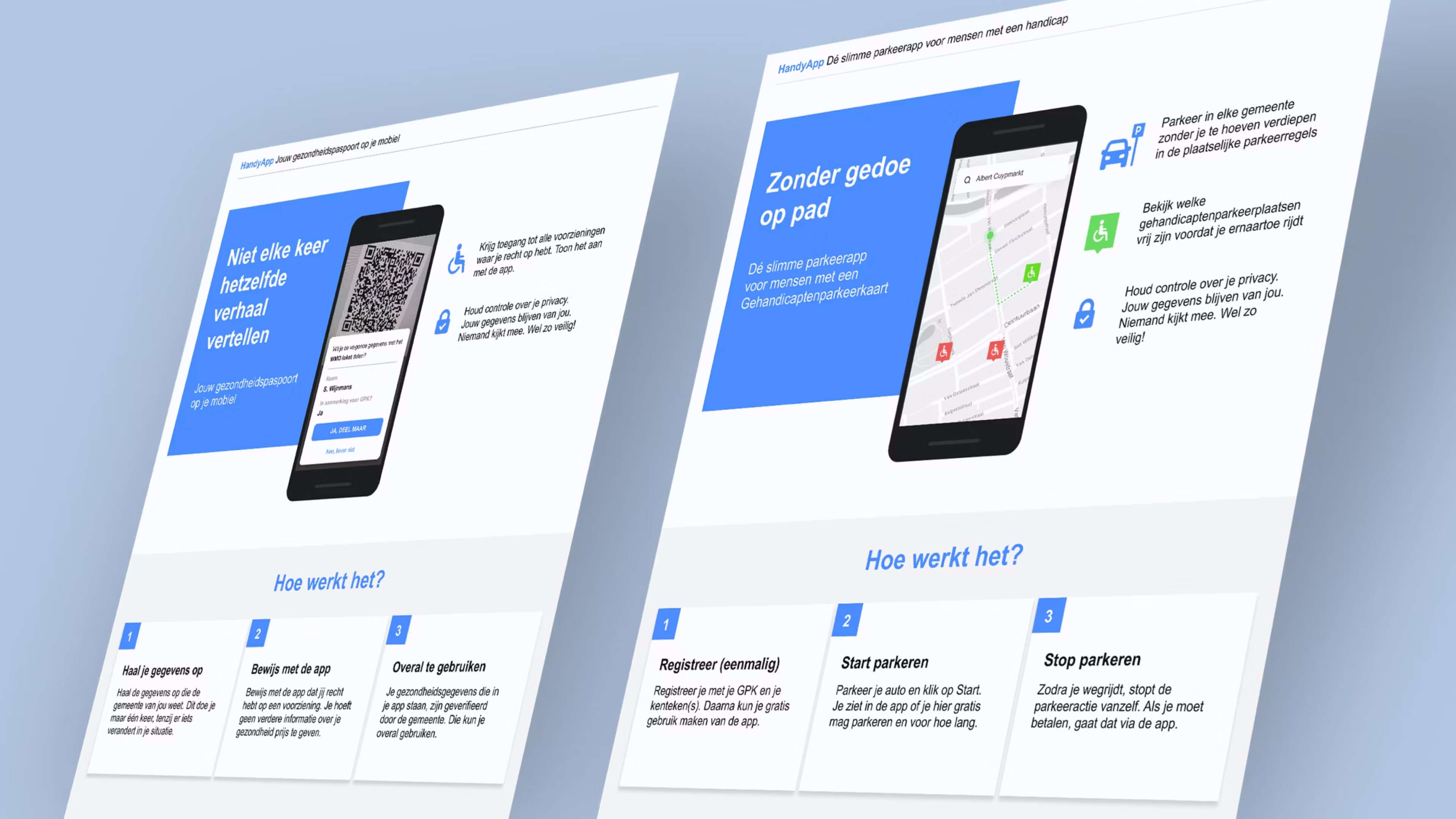
All rules in one place
The app we designed solves several issues in disabled parking. The parking app is designed to be accessible and has three levels of use. Nudges are used to optimize app usage. The basic level (level 1) ensures that no GPK holder has to delve into the parking rules and rates of all 352 municipalities in the Netherlands. The app simply displays the local rules, in advance and on-site, and provides smart reminders. This prevents unnecessary fines and objections. Parkers can see where the disabled parking spots are and whether they are available. So no more driving around in search of a suitable spot.
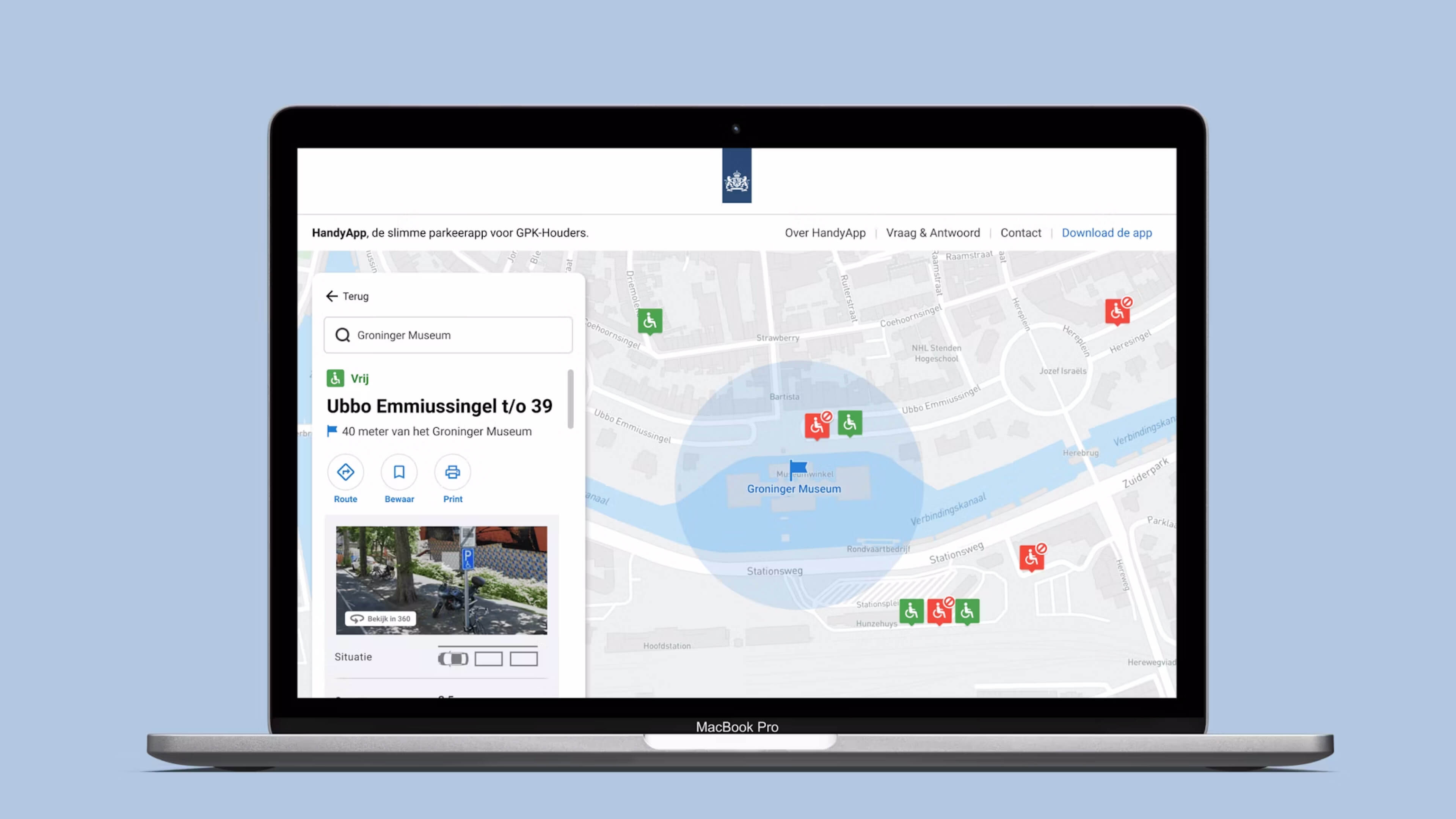
Parking with the digital GPK
When users link their GPK to the app (level 2), it serves as digital proof of the right to park. Because the GPK is digital, there is no risk of the parking card being stolen from the car. Need to pay for a parking spot? That can be done via the app. Convenient, especially for wheelchair users who often struggle with high payment machines.
Permits more fficient
The app knows the parking policies of the individual municipalities and minimizes the burden on users. By downloading one overarching permit in the app (level 3), multiple municipal permits are 'unlocked.' This reduces the pressure on permit issuance and increases efficiency.
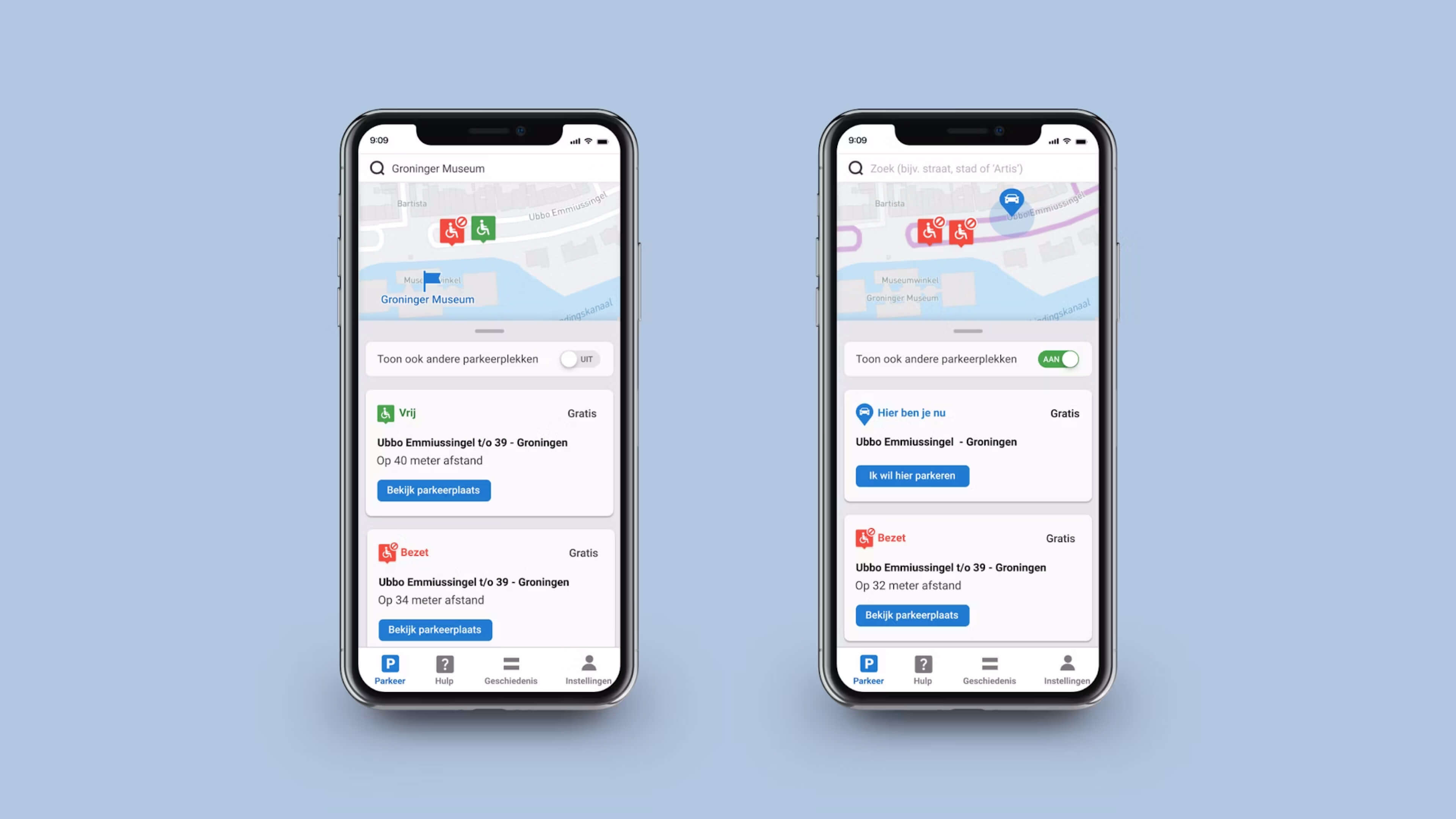
True experience: aligning with values
Privacy, inclusivity (belonging), and fairness are important values for municipalities. These are also the starting points of our solution. Particularly the values at the base layer of the pyramid are crucial: 'ease' and 'avoiding risk.' If these basic needs are met, you can travel without hassle: freely enjoy an outing. The app fully contributes to this. A shared value is 'fairness'; both the government and users suffer from abuse and fraud with GPKs and want fair use of facilities for those who truly need them.
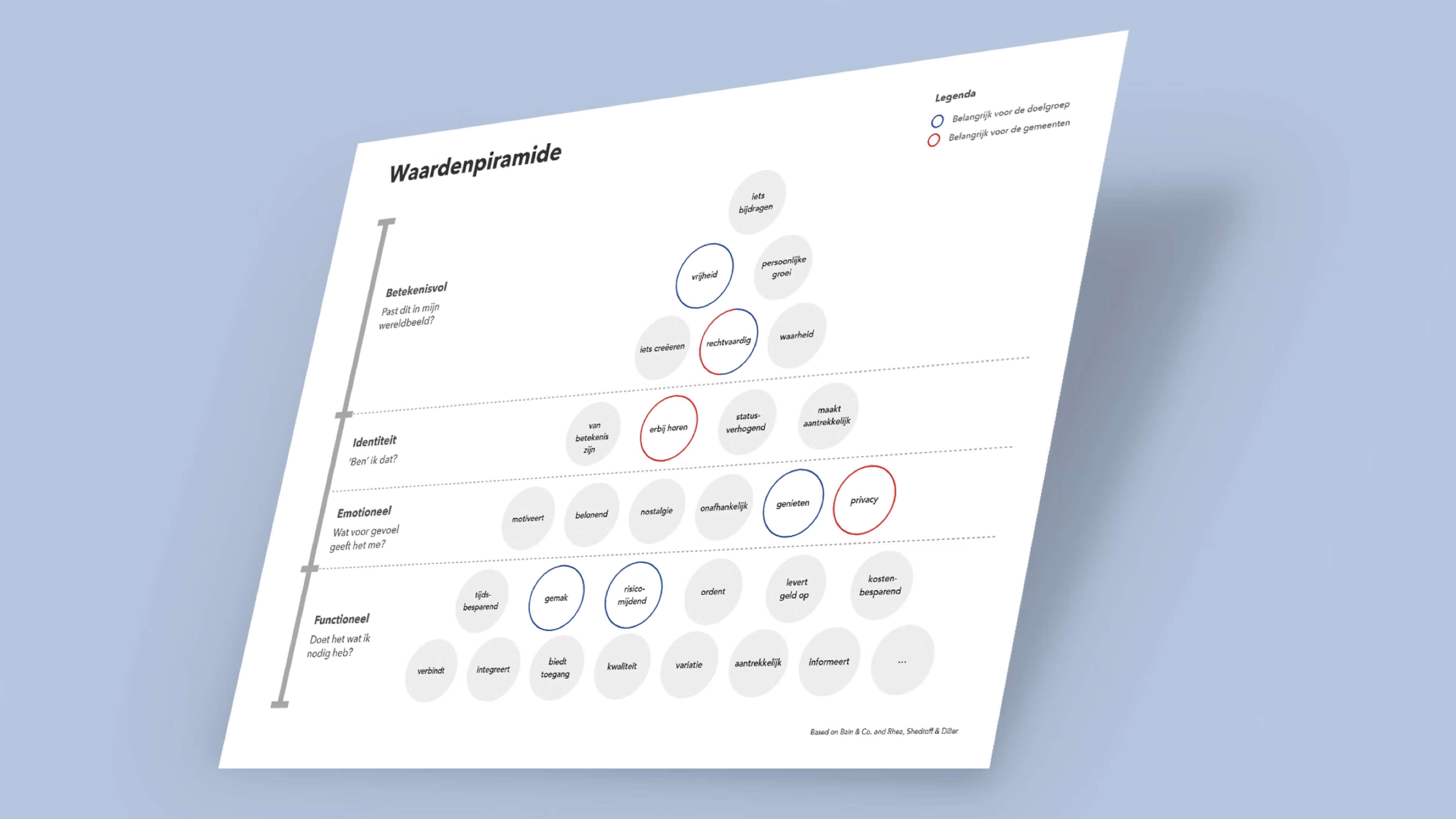
Everything public
Since this project was funded with public money, the team felt it important to communicate publicly about the approach, progress, and results. All research, prototypes, presentations, and the latest updates are therefore accessible to everyone. In addition to the 3-weekly (online) sprint reviews, we also kept a project blog.
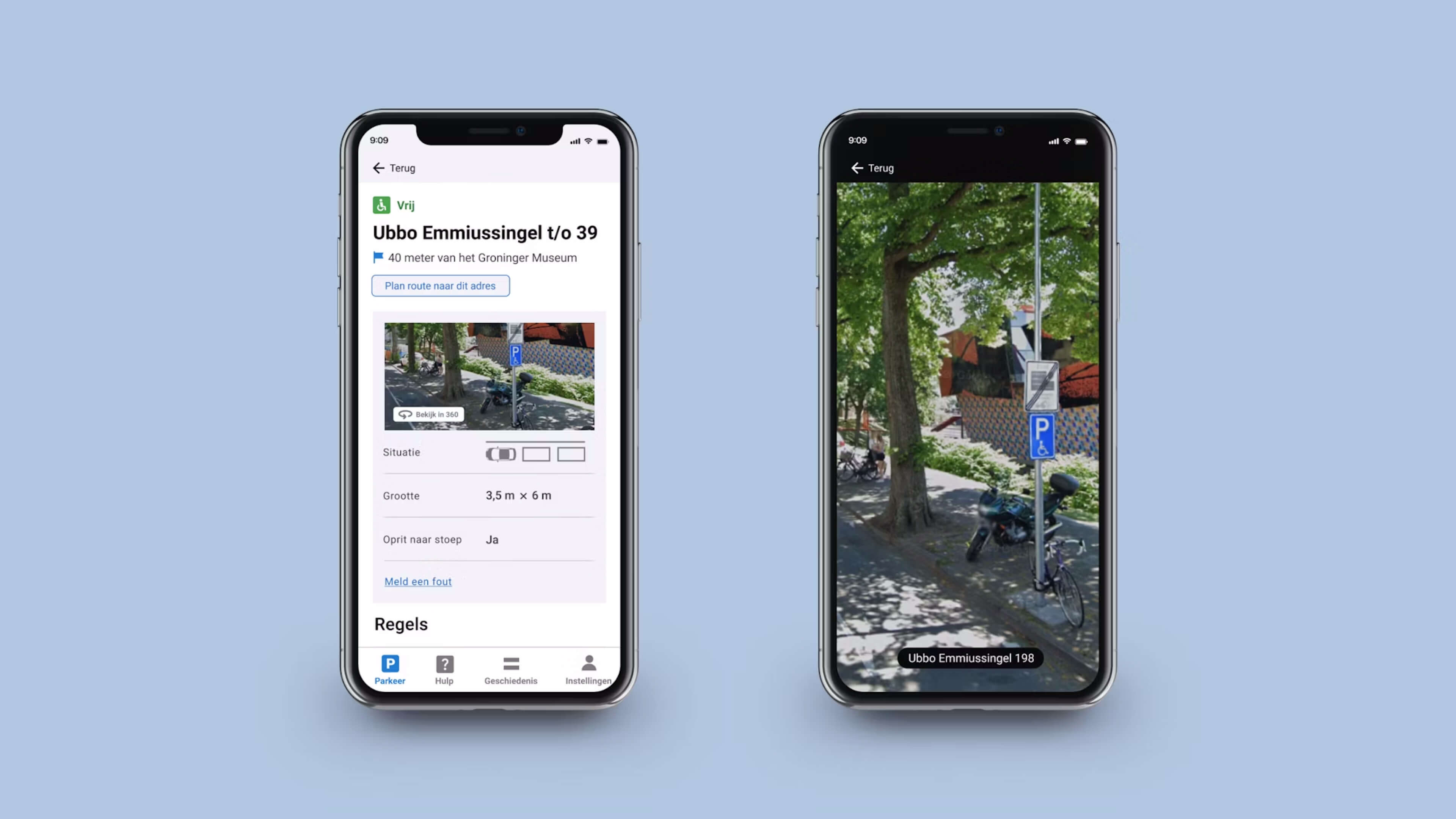
The next step
Sometimes innovations don't get beyond the drawing board. Fortunately, in this case, it did. The Service House for Parking and Residence Rights (SHPV), the Municipal Network for Mobility and Infrastructure (GNMI), and the National Road Traffic Service (RDW) have shown willingness to take the next step and ensure this app comes to fruition.
Do you also need smart solutions for your users?
We are eager to collaborate to make your business valuable, authentic, and credible for your customers of the future. Send us a message, and we will get in touch.
